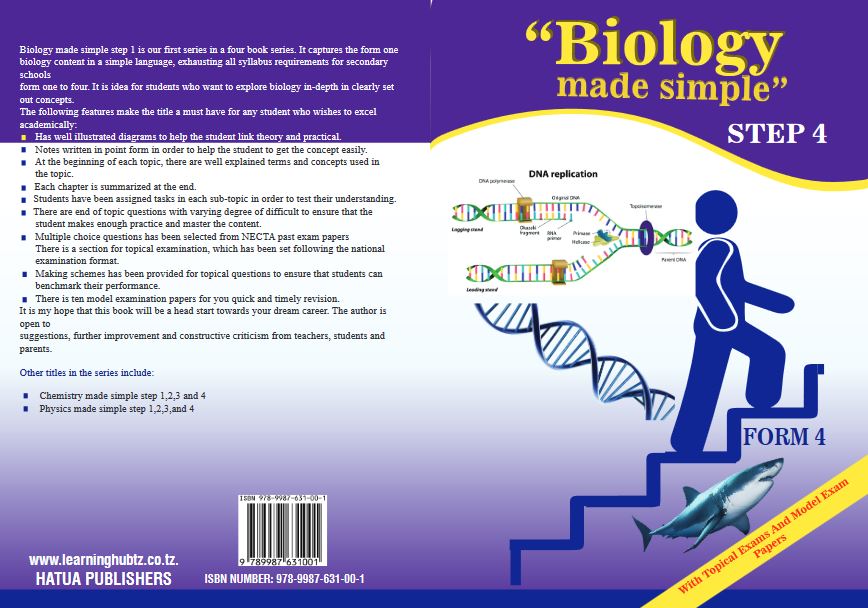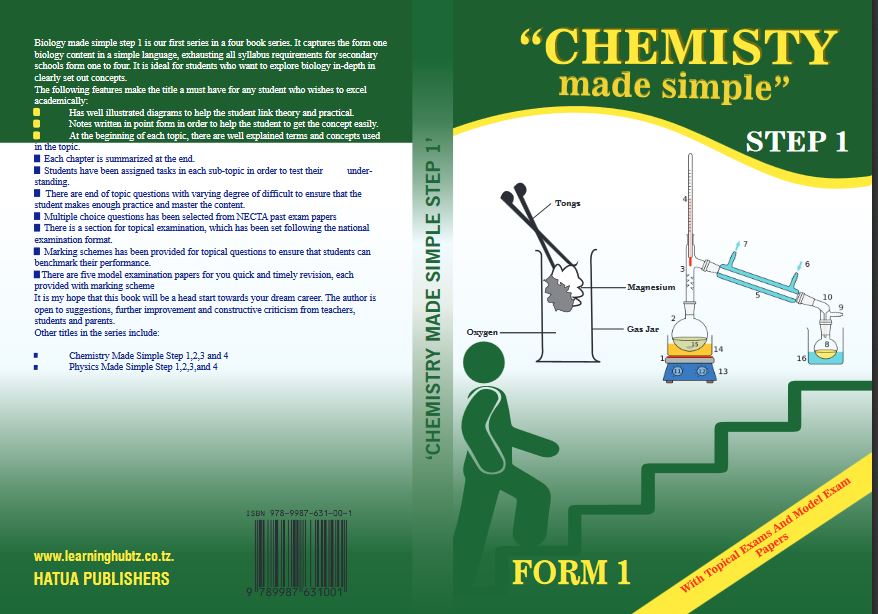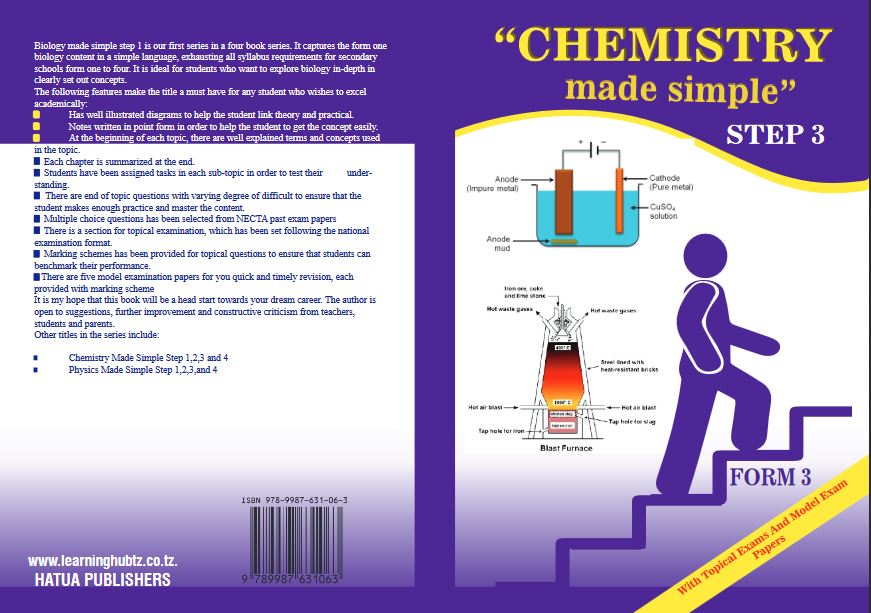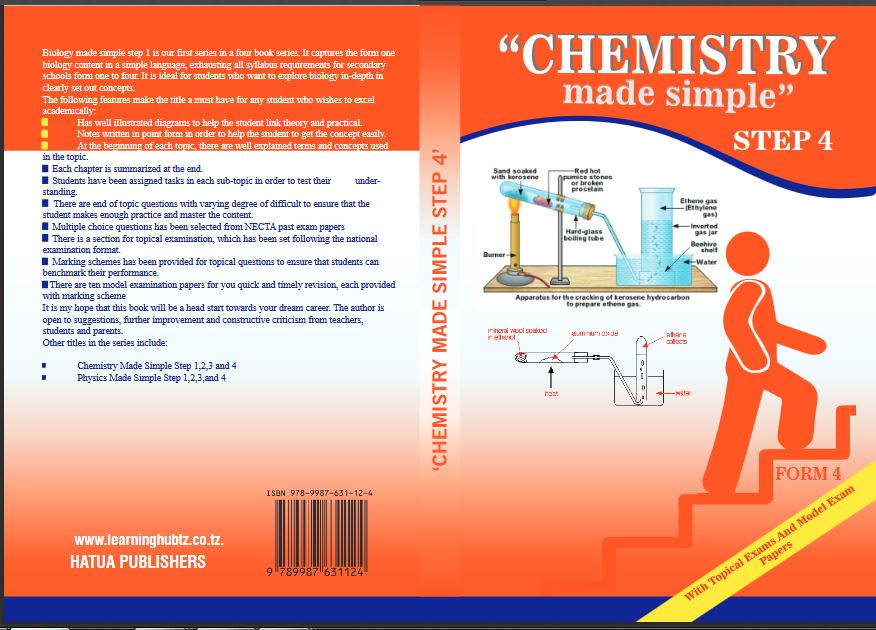THE UNITED REPUBLIC OF TANZANIA NATIONAL EXAMINATIONS COUNCIL
CERTIFICATE OF SECONDARY EDUCATION EXAMINATION
022 ENGLISH LANGUAGE
(For Both School and Private Candidates Only)
Time: 3 Hours Wednesday, 01stNovember 2017 p.
Instructions
- This paper consists of sections A, B, C and D with a total of fourteen (14) questions.
- Answer all questions in sections A and B; and sections C and D as instructed under each section.
- Cellular phones, calculators and any unauthorised materials are not allowed in the examination room.
- Write your Examination Number on every page of your answer booklet(s).
SECTION A (10 Marks)
COMPREHENSION AND SUMMARY
1. Read the passage below carefully then answer the questions that follow.
Two twins, Doto and Kulwa lived in the village of Lulindi. They grew and played together. At the age of twenty, they became independent young men. They then parted wishing each other a prosperous life.
Dotto served in the chiefs palace and became a trusted friend of chief. his brother travelled to a distant land and built his workshop along the road, where he worked as a shoe-maker. Customers flocked to him because his prices were low compared to others around.
One evening, the chiefs spies brought some news that the chief of the nearby village Lilanda is planning to invade him. Dotto was present when the spies disclosed this bad news to the chief. "Let us gather in a large army and ambush him at once!", the chief said angrily, "You see that is the best technique to win a war", his advisor commented. But Dotto advised the chief differently, "Your honour, peace is the most valuable thing that we should protect in our land He further advised him not to believe everything that the spies told him. Finally Dotto said, "I will go to the Lilanda chiefs village personally to verify this information."
The chief agreed but he told him to return after seven days. "On the seventh day if you havent reported back, we shall know that, they have killed or retained you. In this situation we will have no other option but to attack the village", the chief insisted.
When he reached the Lilanda chiefs palace, he discovered that the information which was brought by the spies was not true. In fact, the Lilanda chief was shocked to hear of the allegations, and shouted, "That is nonsense!"
The next morning he sent Dotto back with presents and a letter to his fellow chief and insisted by saying that, "Go and tell my good friend that, I have never had anything against him and it will never happen". In the evening Dotto started his journey back home but he lost his way because it was dark and stormy. He wandered in the wilderness for five days. On the sixth day, he was tired, hungry and sick, his clothes were torn and his shoes were broken. He kept walking in the scorning sun, later on, he could no longer walk. He fell down and lost his consciousness.
When he woke up, he saw someone standing beside him, Dotto could not recognise him. This person helped him to the nearby hut where he was fed and clothed. When he gained his strength, he looked carefully to his host and discovered that, it was his brother Kulwa. They embraced in tears. After narrating the whole episode, Dotto requested his brother to make him a simple pair of shoes which would enable him to walk faster to the chief. In two hours, shoes were ready and Dotto put them on, ready to leave. "I wish you could stay longer, but for the sake of the peace, go and report my brother", said Kulwa.
At home the chiefs hope was diminishing. It was noon of the seventh day where the chief was with his advisor. The advisor said, "Certainly they have killed him". As the sun went down the hills, the chief could no longer wait. He ordered his commanders to get ready for a war in two hour. After an hour Dotto arrived with the good news and the chiefs spies were detained for 20 years in prison for deceiving the chief.
Questions
(a) Choose the most correct answer from among the alternatives given and write its letter in your answer booklet.
(i) What happened when Kulwa and Dotto said goodbye to each other?
- Their lives became miserable.
- They parted each one to his own destination.
- They went somewhere to open a shop.
- They were sad to be separated.
- They went to serve chief’s palace.
(ii) Kulwa worn more favour from the customers than his colleagues around because
- his price were reasonable.
- his workshop was along the road.
- he was cheerful to his customers
- he kept promises to his customers.
- of using genuine leather materials.
(iii)Who brought the information that the Lilanda chief wanted to invade Lulindi village?
- Dotto’s brother
- Lilanda villages
- Lilanda chief
- Lulindi villagers
- Chief’s spies
(iv) When did Dotto return from Lilanda village?
- On the second day
- On the third day
- On the fourth day
- On the fifth day
- On the seventh day
(b)Complete the following sentences with the right information from the passage.
(i) A person with Dotto’s Characters and attitude may be called _____________.
View Ans(ii) Two people born together, nearly the same time and from the same mother are called ________________.
View Ans(iii) Kulwa was involved in the business of ________________.
View Ans2. Read and summarize the following passage in five sentences in a single paragraph.
The vast majority of men throughout history have lived close to the land, in rural villages or tribal groupings that were bound by age-old traditions. Life moved slowly there, and changes lagged far behind those of the fast-paced cosmopolitan centres.
Beginning in the nineteenth century, however, urbanisation accelerated rapidly as a result of the Industrial Revolution. By now, more than half of the population of North America and almost half of the population of Australia and New Zealand live in cities of at least 100,000 people. In South america and Europe about one third of the people live in cities of at least 100,000 people. Only Asia and Africa remain overwhelmingly rural, with 90 percent of the people still living in agricultural villages and on farms. But even with picture is beginning to change.
The speed with which urbanisation is now taking place stands in sharp contrast to the very gradual development of cities over thousands of years. Today there is accelerated pace of urbanisation, with its accompanying technological changes, which has the effect of uprooting people, destroying ancient traditions and beliefs, and breeding instability. For example, the urbanisation and industrialisation taking place in India is helping to break down the cast system that has regulated Indian life for thousands of years.
View AnsSECTION B (20 Marks) PATTERNS AND VOCABULARY
Answer all questions in this section.
3. Re-write the following sentences according to the instructions given after each.
- “Why do you waste your time?” (Rewrite into indirect speech) View Ans
- He is concentrating in Mathematics. He does not want to fail. (Rewrite using: so that) View Ans
- The secretary was busy with files, she could not type our letter. (Begin with: Being busy ___). View Ans
- An american shot the film last year. (Rewrite into passive)
- A person whose job is to make clothes like suits for an individual customer is called __________. lign="left" class="MsoNormal" style="margin-top: 0in; margin-right: 0in; margin-bottom: 0.0001pt; text-align: left; line-height: 107%;">A male flight attendant is called __________.
5. Fill in the blank spaces with the appropriate articles where necessary.
- I need to buy __________ orange. View Ans
- Kilimanjaro is __________ highest mountain in Africa. View Ans
- Our President was once __________ member of Parliament. View Ans
- Will you lend me __________ book I saw you reading yesterday?
6. In each of the following sentences, one word is wrong. Identify the wrong word and replace it by writing the correct word.
- Our grandfather had a long bed which had not been shaved for years. View Ans
- The headmaster’s car is packed under the tree. View Ans
- My son hut his leg when he was running. View Ans
- Chausiku is a very reach woman. She owns one of the five stars hotel.
7.Study Lina’s time-table below and compose four grammatically correct sentences.
| Activities | Time |
| wake up | 5:00 am |
| take a bath | 6:00 am |
| go to school | 7:00 am |
| do school activities | 8:00am - 12:00pm |
| return back home | 1:30 pm |
For example: Lina wakes up at 5.00am.
(a) _____________________
(b) _____________________
(c) _____________________
(d) _____________________
View AnsSECTION C (30 Marks) LANGUAGE USE
Answer questions 8, 9 and two of the four given alternatives in question 10.
8.Re-arrange the following five sentences into a logical sequence to make a meaningful paragraph by writing the corresponding letter in the answer booklet provided. Use the following format for your answers.
| Sentence Number | 1 | 2 | 3 | 4 | 5 |
| Letter |
|
|
|
|
|
- He was born in 1973, in Karumekenge Village.
- He finished his first degree in 1997.
- He started his primary education in 1980.
- Since 1998, he is working with the family company.
- The first born in our family is Yoshia.
9.Match each expression in List A with the correct word from List B by writing its letter beside the item number in the answer booklet(s) provided. Use the following format for your answers.
| Number | i | ii | iii | iv | v |
| Letter |
|
|
|
|
|
| LIST A | LIST B |
| (i) A place which is used to cook some food. (ii)A place where you sleep in the night. (iii) A place where you can buy food stuff. (iv)A place where people buy and drink alcohol. (v)A place where people get treatment. |
|
10. Answer two questions from the four alternatives A, B, C and D.
A.(a) Write an invitation card to form two parents to attend the class party for their children who had good performance in the examination.
View Ans(b) Outline the format of writing telephone messages for those who will call for excuse.
View AnsB. Imagine that you have been elected to be a Chairperson of Mwananchi street. The street has a total number of 50 houses. It has a lot of problems that need to be solve. Write a speech to be presented in a meeting to address those problems in eight points.
View AnsC. By giving eight reasons, write an essay on “Why women throw away their young babies” in not less than 250 words.
View AnsD.Imagine that you have been employed in one of the Chinese industry for about a year now and you are getting hardships. Write a letter to your sister explaining about the hardship you are going through and ask her to secure another job for you elsewhere. Sign your name as Amani Tumaini.
View AnsSECTION D (40 Marks)
RESPONSE TO READING
LIST OF READINGS
NOVELS AND SHORT STORIES
| A Wreath for Father Mayer | - | S.N. Ndunguru (1997), Mkuki na Nyota |
| Unanswered Cries | - | Osman Conteh, Macmillan |
| Passed Like a Shadow | - | B.M Mapalala (2006), DUP |
| Spared | - | S.N. Ndunguru (2004), Mkuki na Nyota |
| Weep Not Child | - | Ngugi wa Thiong’o (1987); Heinemann |
| The Interview | - | P. Ngugi (2002), Macmillan |
| PLAYS | ||
| Three Suitors: One Husband | - | O. Mbia (1994), Eyre Methuen |
| The Lion and the Jewel | - | W. Soyinka (1963), OUP |
| This Time Tomorrow | - | Ngugi wa Thiong’o (1972), Heinemann |
| The Black Hermit | - | Ngugi wa Thiong’o (1972), Heinemann |
| POETRY | ||
| Songs of Lawino and Ocol | - | O. P’Bitek (1979), EAPH |
| Growing up with Poetry | - | D. Rubadiri (ed) (1989), Heinemann |
| Summons | - | R. Mabala (1980), TPH |
11. Read the following poem and then answer the questions that follow:
He read medicine,
Specializing in the tooth
And graduated, with honours
With new thesis
To cure the aching malady.
"Our teeth shall be all right"
People chanted, welcoming his services.
And he started work, prompt and immediate. They brought him all the teeth they had Decaying teeth, aching teeth, strong teeth.
And he started working on their jaws
Diligently pulling out every tooth
From the jaws of every mouth, And they paid him with meet
Which now they could not eat.
And so on went the dentist
Making heaps and heaps of teeth
Useless. Laying them waste
Without fear that soon,
Very soon indeed,
He would have no teeth to attend to
No tooth for which to call himself a dentist.
Questions:
- Suggest the title of this poem. View Ans
- What is the poem about? View Ans
- What type of poem is this? View Ans
- Describe the form of this poem. View Ans
- Analyse two musical features used in this poem. View Ans
- What are the possible two themes in this poem? View Ans
- What message do we get from this poem? View Ans
- Comment on the selection of words in the poem. View Ans
- What is the mood of the poet. View Ans
- Does the poem have any relevance to your society? Give reason for your answer.
12. With reference to two poems that you have read in this section, show how the poets have addressed the issue of leaders’ irresponsibility. Give four points from each poem.
View Ans13.Analyse the causes of conflicts in the two plays that you have studied in this section. Give four points from each reading.
View Ans14. Figures of speech are used by novelists to colour their literary works. Analyse the effectiveness of these elements in presenting the message by referring to the two novels that you have studied. Give four points from each novel.
View AnsANSWER

Hub App
 For Call,Sms&WhatsApp: 255769929722 / 255754805256
For Call,Sms&WhatsApp: 255769929722 / 255754805256
 For Call,Sms&WhatsApp: 255769929722 / 255754805256
For Call,Sms&WhatsApp: 255769929722 / 255754805256
WHATSAPP US NOW FOR ANY QUERY
App Ya Learning Hub Tanzania





